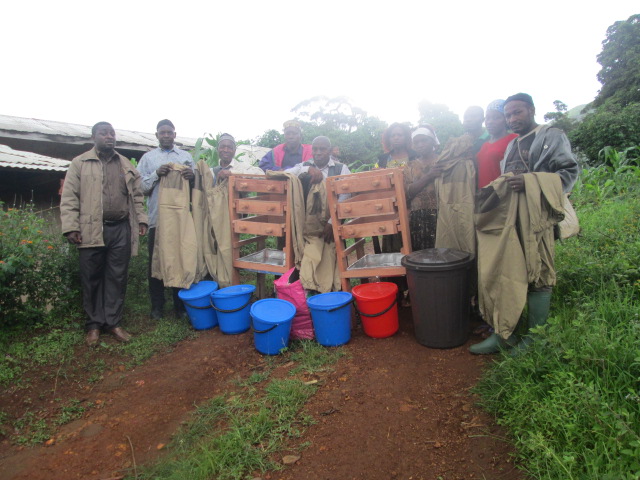

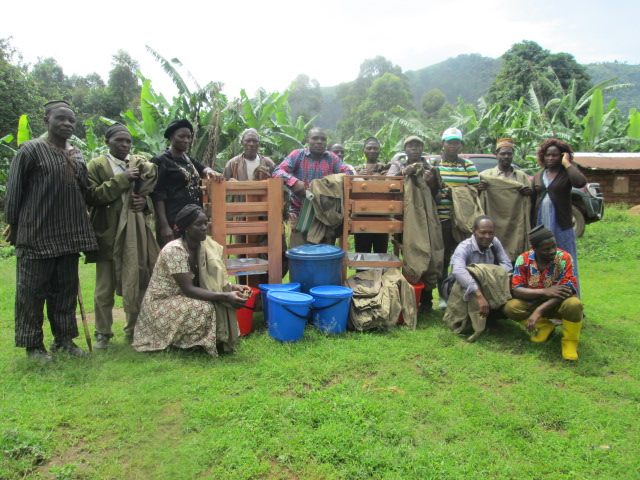
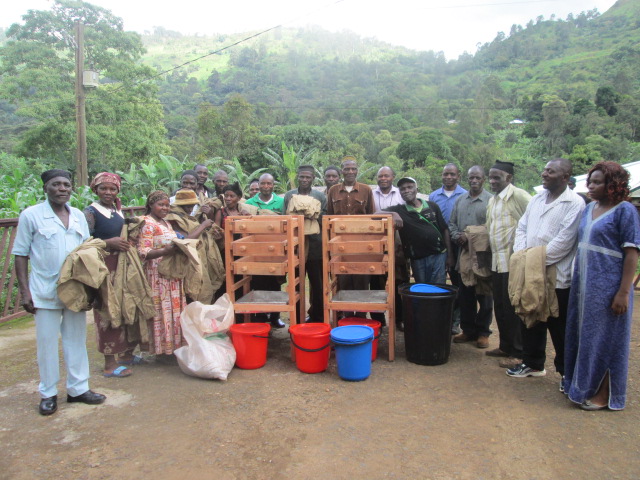
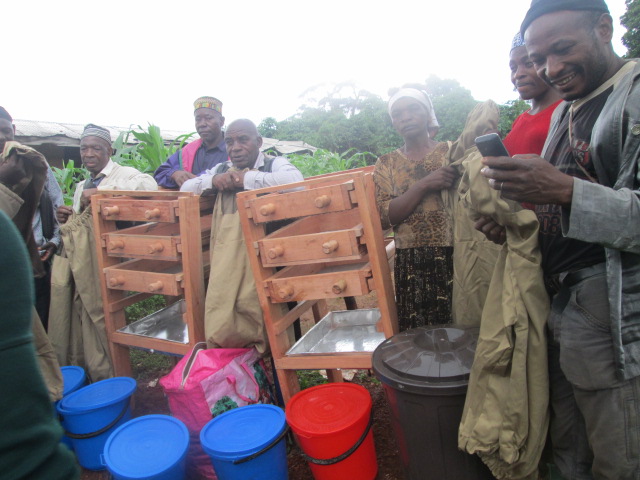
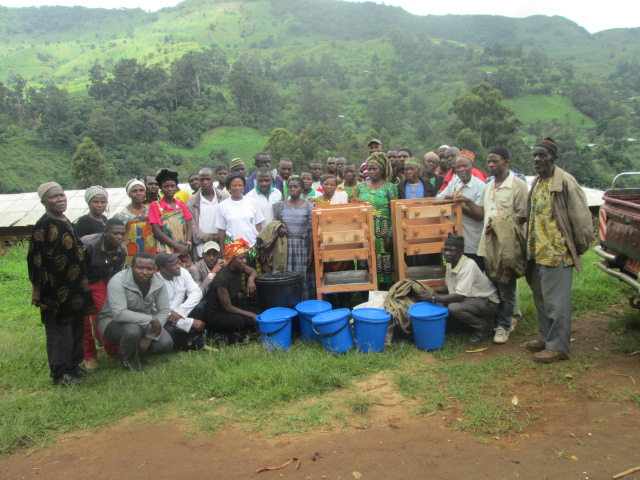
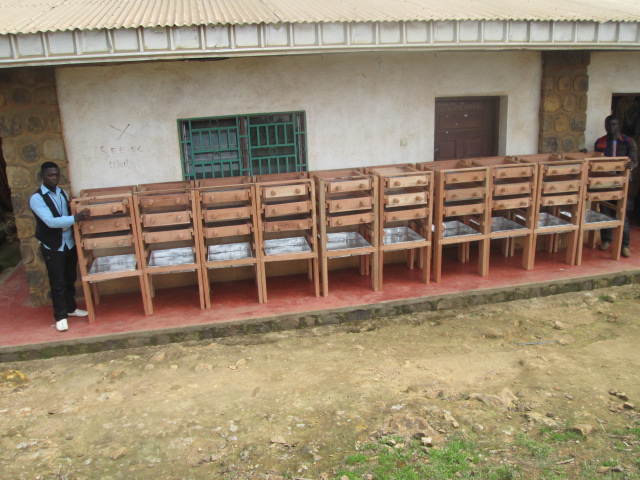
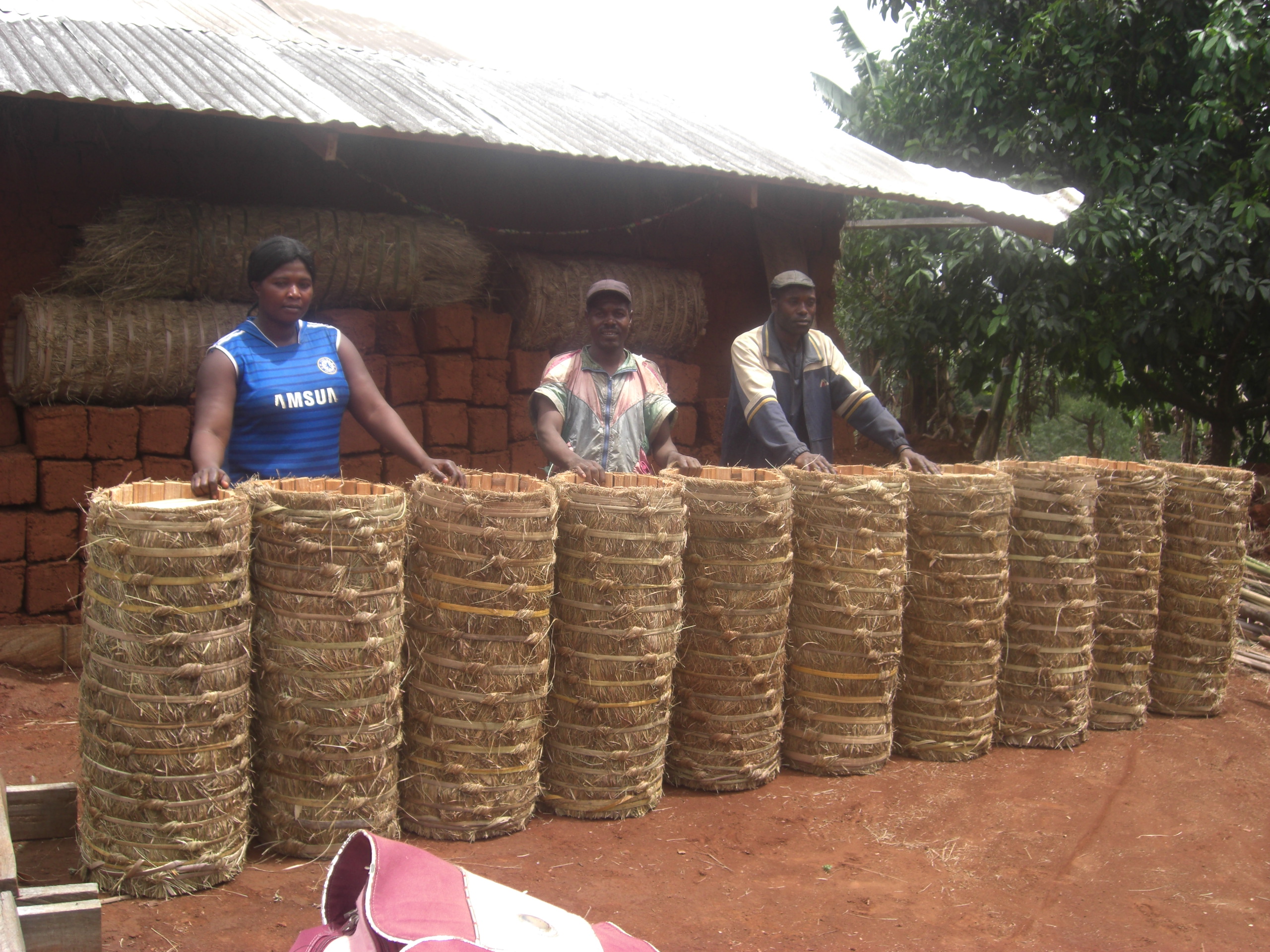
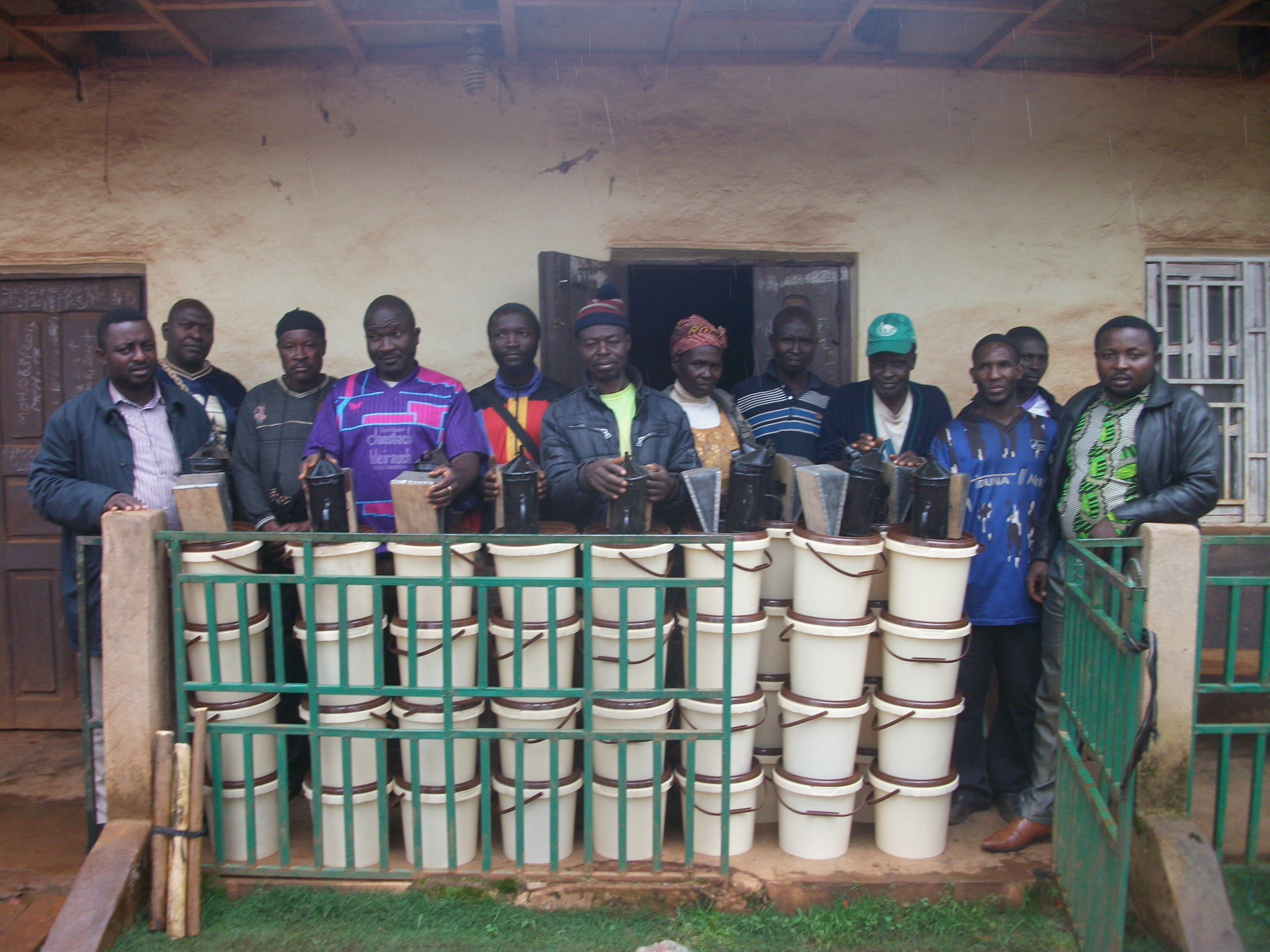
CAMGEW provided the various cooperatives with equipment and materials to enable them to function better. The materials included beehives, honey drainers, honey harvesting containers, beesuits, bee smokers, honey storage containers and honey packaging containers.The cooperatives needed material for honey harvesting and storage, and equipment to drain honey. CAMGEW gave them basic equipment and material to promote a smooth start-off. The various cooperatives have to care for additional material and equipment on their own. There are other institutions that could assist the cooperatives. To access those, CAMGEW supported cooperative leaders with training on management skills. CAMGEW created 5 new cooperatives in the Sub-Divisions of Belo, Njinikom, Jakiri and Fundong. One cooperative existed already in Oku for more than two decades, contributing much experience and success stories. The new cooperatives are learning from the existing one through exchange visits.
The Kilum-Ijim forest is very vast and hilly, which makes it difficult to transport honey over long distances.
The Kilum-Ijim is one of the most densely populated forest areas in Cameroon: 300,000 people live within less than one walking day from the forest. This calls for decentralisation through the creation of more cooperatives
The forest is divided into 18 community forests and there are three distinct tribes living in the forest.
Some communities have started donating materials to cooperatives.
Many community members are getting involved in bee farming and this is increasing the security of the forest from bushfire with the donation
The fact that CAMGEW buys honey from the cooperatives has encouraged many persons to get into bee farming because it is a secured way to get a job and income through the market for honey.
The cooperative leaders have learned much from our trainings, exchange visits with the old cooperative leaders and other leaders of the new cooperatives.
Community members who initially doubted their elected cooperative leaders are believing in them now as leaders are gaining skills and becoming apt honey managers and marketers.